The Ministry of Education, Culture, Sports, Science and Technology's "University Regional Revitalization Human Resource Education Program Construction Project (COC+R)" and the national symposium for FY4 were held on Saturday, February 2023, 2 at Shinshu University Matsumoto Campus.The theme of the symposium is from “individual learning” to “co-creative learning”.The sub-theme is ``What local universities should challenge as a ``place'' to continue learning toward the realization of a sustainable local society. was given.I will send you that report.
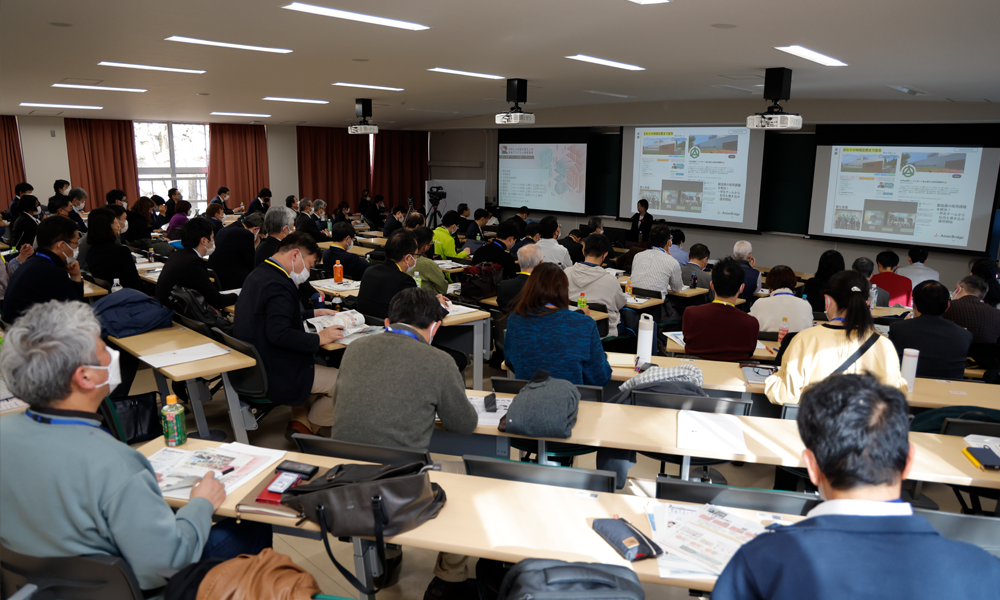
In the mid-term of the business, we are in the phase of looking ahead to future self-driving
Until last year, the nationwide symposium was held online only due to the coronavirus pandemic, but this year, due to the relaxation of restrictions on movement, the symposium will be held face-to-face at Shinshu University.More than 600 people gathered at the venue and on the web.
First, Soichiro Nakamura, President of Shinshu University, gave an opening address, explaining the importance of co-creation over a wide area and co-creation through industry-academia-government collaboration in order to revitalize and enrich the region.He concludes by stating that this symposium can make a significant contribution to addressing the challenges facing us.
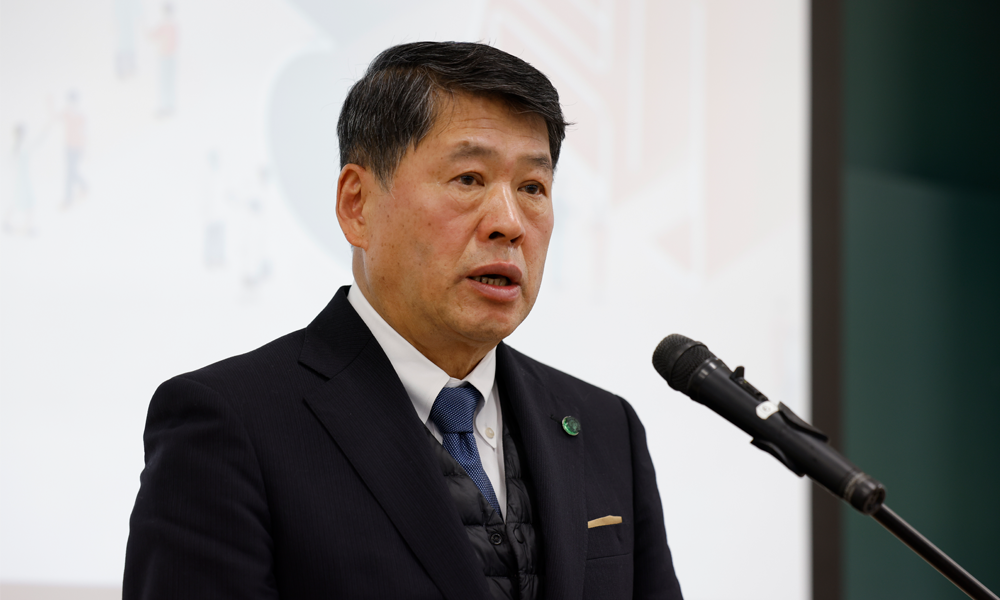
Next, Mr. Minoru Usui, Chairman of the Nagano Employers Association and Chairman of the Board of Seiko Epson Corporation, took the podium as a guest.For a decarbonized society, it is necessary to nurture industry together with nature, realize diversity, and eliminate overconcentration in Tokyo.I talked with ale to realize it from this Shinshu.
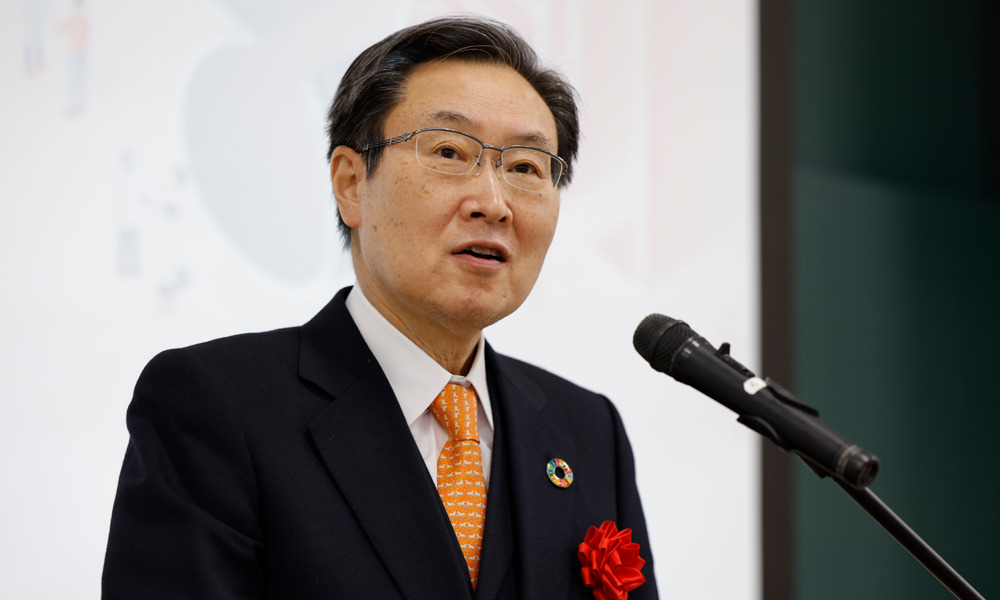
In addition, Hiroshi Kamiyama, Director of the General Education Policy Bureau of the Ministry of Education, Culture, Sports, Science and Technology, explained the transition and interim evaluation of COC+R, and to further deepen the theme of this time, "co-creation" is the key to realizing a sustainable local society. I said that it would beFinally, Professor Shunsuke Yano of Shinshu University concluded by explaining the purpose and program of the symposium, stating that from now on we will be entering a phase in which we look ahead to the self-running of educational programs.

Deepen discussion on “learning” with lectures by three speakers
After the greetings, a lecture was held.This time we have three speakers.We had a hot talk about each theme.
The first is Mr. Takashi Takahashi, CEO of Brain Pad Co., Ltd.I spoke on the theme of learning so that companies can change. Presenting data from each country on the "difference in evaluation between those who pursue change and those who create change", changes due to the penetration of automobile companies, artificial satellites, and AI, the significance of knowing them, and how they must change. Explain while.
He pointed out that the reason for Japan's decline in international competitiveness was insufficient investment in the Internet, especially in ICT.He pointed out that outdated companies that were unable to respond to the future of business that is completed online have led to low productivity and sluggish growth.Therefore, the most important thing is that the management should study, and if the leader does not change, the company will not change.
Companies with low earning capacity will be attracted to Tokyo for excellent human resources.However, he continued, if local companies can turn these around and increase productivity, they can hire people to work locally.I concluded that small companies are easier to change management, so opportunities are expanding at the same time, and it will be directly linked to global work.
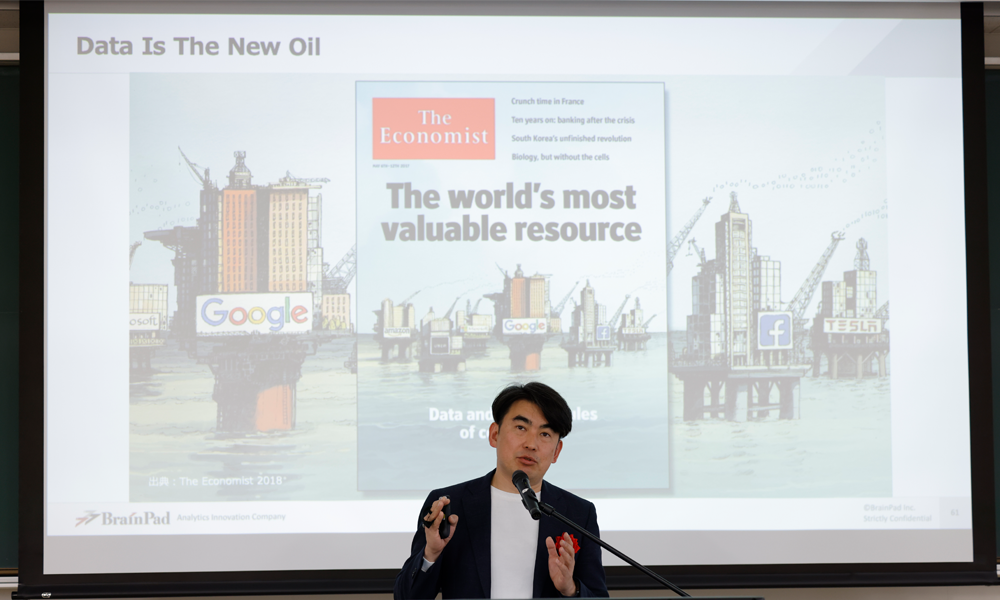
The second lecture was given by Mr. Haruka Matsuda, Director of Asian Bridge Co., Ltd. and Chairman of Tenten Labo, on the theme of "Learning the Human Resources Needed in the Region in the Future."As for her own career, she has experienced contributing to society in the retail industry, has been involved in NPO activities, and has launched a general incorporated association to support the career development of transferees, and how she has been systematizing it at an IT company. I spoke.In particular, we have found the possibility of using IT to eliminate the confusion of transferees, and have established bases in Kanazawa and Toyama in order to promote the introduction of IT such as cloud services required in rural areas.Then, I experienced research in the co-creative tourism industry development program at Kanazawa University, and I picked up the problems of local companies and led them to solutions.In addition, we have started a service for adult internships, and we are working to develop and spread it using SNS and other means.I talked about not only securing employment for the wives of the transfer family, but also expanding efforts such as forming a second career for athletes, for example.
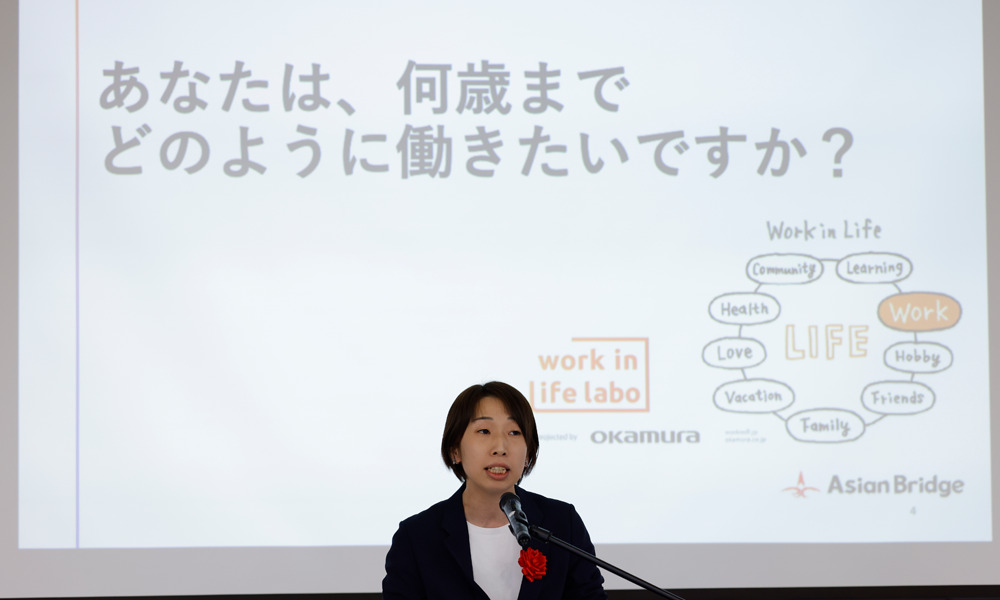
The third speaker was Mr. Hiroshi Kobayashi, director of Recruit Preparatory Research Institute and editor-in-chief of Recruit "College Management". He gave a lecture based on his knowledge from his own specialized field under the theme of "University Learning" Necessary for the Community in the Future.He joined Recruit when it was still a venture, and after studying marketing there, he was seconded to Keizai Doyukai.So he was in charge of education policy advocacy, which he says was a turning point.He also disseminated educational information based on data that had never existed before.He also pointed out that there are three factors in the environment surrounding universities, which is the theme of this time: demographics, changes in industrial and employment structures, and accompanying policy trends.Each issue and problem, and how to solve them, were explained with various examples.

Report on building a causal model to increase the local employment rate
After the lecture, Assistant Professor Akiko Nishio of Shinshu University's Career Education Support Center reported on the "cause and effect model" for considering local employment.The causal model for FY3 extracts three factors: companies, universities, and students, and further classifies them to explore causal relationships with actual events and attempts.In the 3th year of Reiwa, while keeping the three factors as they are, we will conduct interviews with local SME managers, university officials of COC+R adopted schools, and students who have found employment at local companies. I made an appearance.And it became apparent that the three factors were not independent, but ultimately connected.The theme of this symposium, "co-creation," was a reminder that individual learning is sublimated into "learning together."If finding employment in the local area is the "exit", attachment to the area and connection with people are still indispensable.
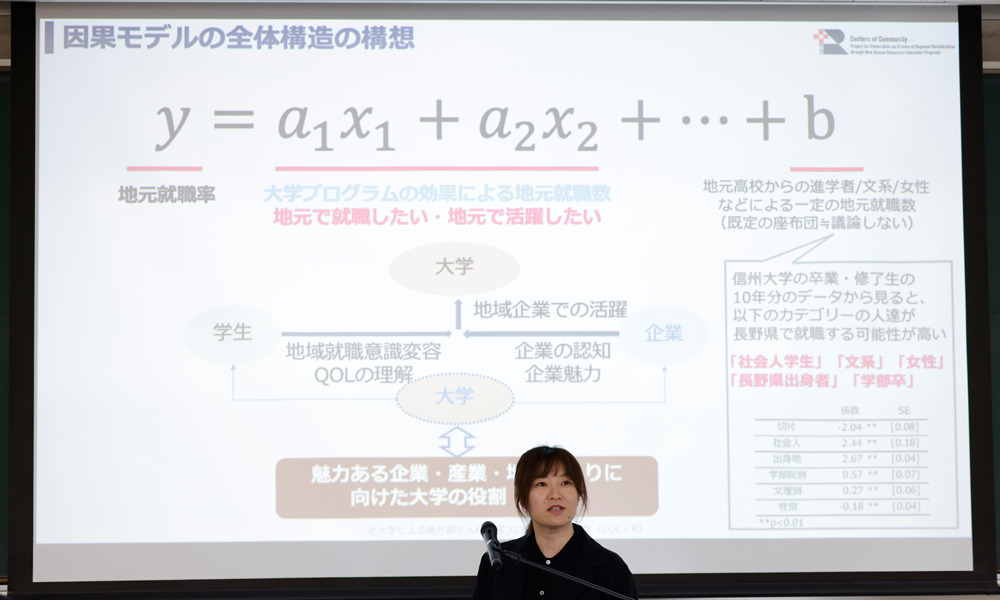
How to put “co-creative learning” into practice and make it self-propelled—Two panel discussions held
A panel discussion was held next.Here, we set two themes and held them simultaneously in separate venues.
Theme 1 is "Points of 'co-creative learning' between companies and students".Mr. Kazuhiro Sasao, Planning Director of the Secretariat of the Cabinet Secretariat Digital Garden City National Concept Realization Conference, Mr. Tomoyuki Kume, President and CEO of NDK Co., Ltd., and Okayama Prefectural University and Tokushima While the university introduced specific practical examples of "learning through co-creation," discussions were held on these points.
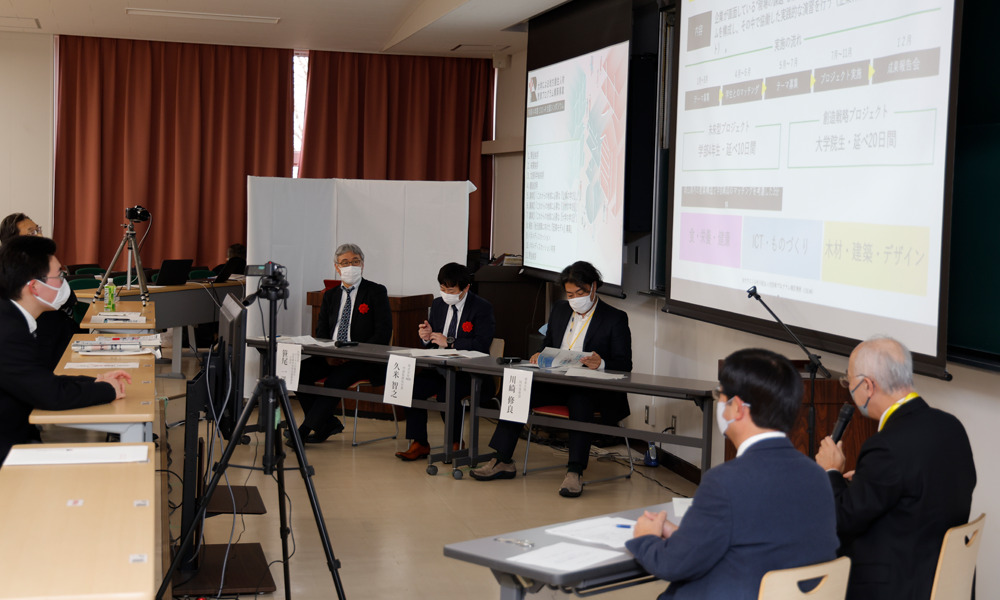
"Points of 'co-creative learning' between companies and students"
In Theme 2, Mr. Kamiyama, Director of the Ministry of Education, Culture, Sports, Science and Technology (MEXT), took the podium on "Organizations that self-run "co-creative learning" between students and companies." (ENGINE program) shared the concept and direction of future self-propulsion, and the discussion developed while extracting various viewpoints on self-propulsion.

“How an organization should be to self-run “co-creative learning” between students and companies”
Prior to closing, facilitators Masayuki Suetomi and Mikio Yamamoto presented three lectures and two panel discussions, summarizing and summarizing the contents of each.While using the graphic recording that has become familiar, I looked back in an easy-to-understand manner.
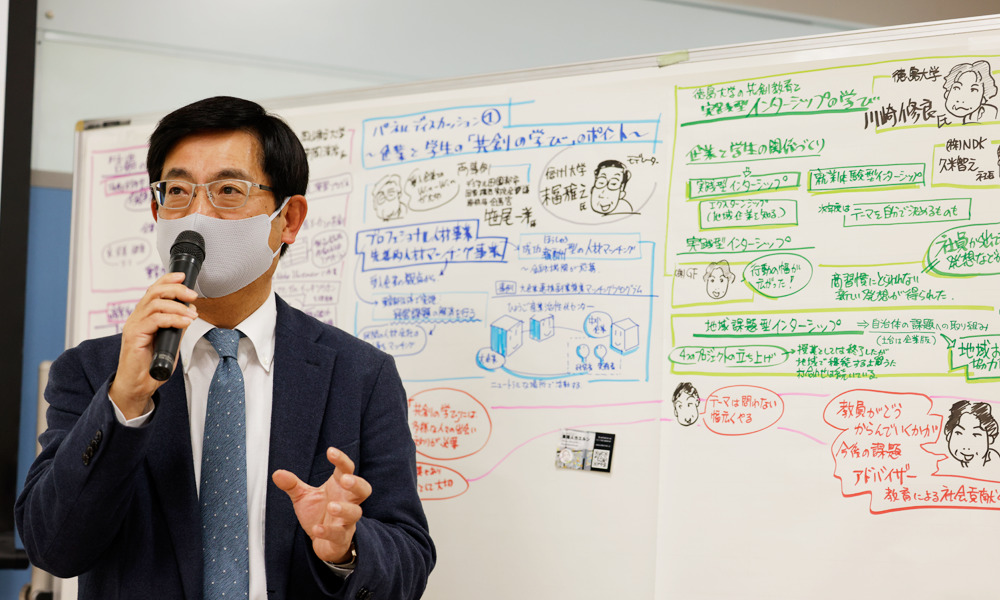
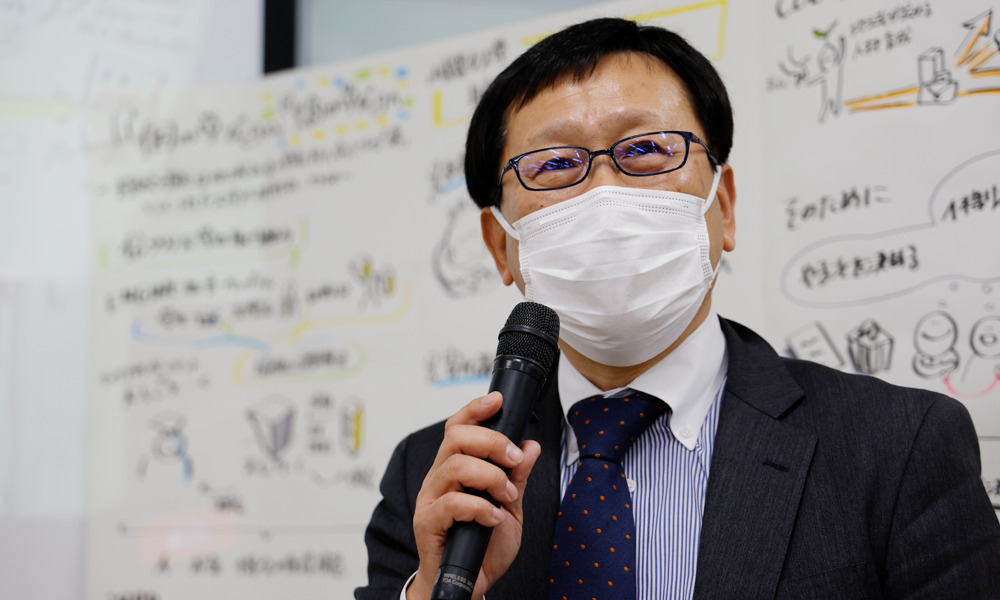
Shinshu University Vice President Yasuhito Hayashi made the closing remarks and firstly expressed his regret that there were not many students among the participants.Next, we regard innovation as a “new combination,” and co-creation learning is exactly that.I concluded that new things are connected to each other to bring about innovation.

Looking back on the four-hour symposium itself as a time for co-creation, it must have stirred expectations for the future of COC+R, which has completed half of its implementation period.
*The video of the symposium is open to all COC+R members.
●Symposium video list page
https://coc-r.jp/archives/

